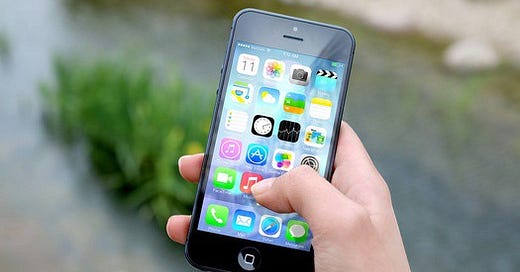Are we doing enough with our smartphones?
The aggregate computing power of all our smartphones likely exceeds that of many supercomputers.
The aggregate computing power of all our smartphones likely exceeds that of many supercomputers.
Cast your mind back to June 29, 2007. A day like any other. Yet a special summer day. It was the very day that our undivided attention was fatally struck by a gadget-sized blow. Fashioned in the shape of fast, seamless, virtual communication and access to the world’s information at our fingertips. We had no idea what was about to hit us.
It was the day the iPhone was released to the public.
The iPhone was rightly greeted with worldwide acclaim, laud and praise for its marvelous design and feats of engineering. But not even the most ardent Apple fan could have imagined the colossal, titanic impact smartphones would have on modern life. In amazing ways and unwelcome ways.
The Amazing
Your smartphone is packed with a punch. You have more processing power in your smartphone than all of NASA in 1969 when it sent astronauts to the moon. You have a limitless reservoir of apps that can do almost anything for you. You can instantly communicate with people around the world with no regard for geographic barriers. You can even detect retinoblastoma, a rare eye cancer with your smartphone.
You own a smartphone, therefore you can.
The Unwelcome
Smartphones consume our lives. They exert an almost gravitational pull on our attention. We spend more time with screens than other people. Mindlessly scrolling through app after app in search of nothing. Because we need that dopamine rush that we get from notifications from social media and the thrill of digital interaction. You hop on a train and everyone looks down into their virtual world. You’d rather interact with a stranger halfway across the world than the person seated right next to you.
You own a smartphone, therefore you can.
The Potential
In 1969, America and the world were brimming with optimism. We had just landed on the moon. In spite of the severe technological challenges, man had won. If you told an American in 1969 that by 2015, man would not have returned to the moon but would have become supremely addicted to a pocket size device, chances are he or she would think you were crazy. But this is where we are.
Have we made great technological strides in those 46 years? Absolutely. We sequenced the human genome, we built this lovely thing called the Internet and Google organised the world’s information for us.
But with great power, comes great responsibility. To whom much is given, much is expected. We carry tons of processing horsepower in our palms everyday. Almost 2 billion of us have smartphones. And there are big problems that humans need to solve — sustainable energy production, cancer and other healthcare issues, food shortages and environmental destruction.
Surely, there must be a way that the people can help to solve these problems. Can’t we contribute our computational ‘surplus’ to support solving these issues? I don’t know for certain but I imagine that the aggregate computing power of our smartphones likely exceeds that of many supercomputers.
Samsung’s Power Sleep app and UC Berkeley’s BOINC app both use computational power donated by Android owners to analyze research data at night whilst the phone user sleeps. But these are the only two cases that I’m aware of. Why isn’t this more widespread?
What are we doing with all the power that we have? Surely, we can do more than Snapchatting our nights out and Instagramming our meals. Scientists from 40 years ago would’ve killed for the computational power, access to information, access to each other and access to funding (via crowdfunding campaigns) that we take for granted.
ARM, the industry leader of microprocessor technology, announced that their latest chips will triple the current processing power of smartphones by late 2015 or 2016 .
Why don’t you use your smartphone to help solve a big problem?
You own a smartphone, therefore you can.





